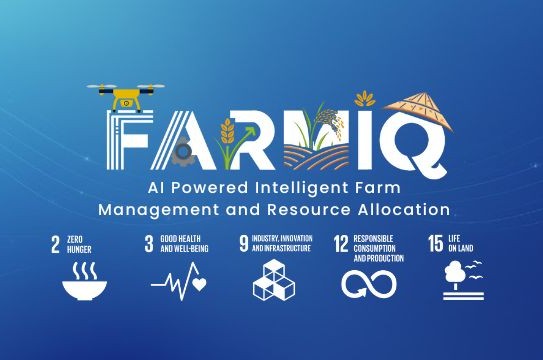
While the Philippines remains one of Asia’s most agriculture-dependent nations, the sector continues to struggle with low farm productivity, high input costs, post-harvest losses, and rising climate vulnerabilities. In response, Mindoro State University (MinSU) has launched FARMIQ: Futuristic Agriculture Resource Management and Intelligent Quantification, an international collaborative research initiative designed to strengthen sustainable and technology-driven farming practices across Southeast Asia.
Formally introduced on May 05, 2025, FARMIQ is a tri-country partnership between MinSU, Asia Pacific University (Malaysia), and the Coimbatore Institute of Technology (India), under the University Incubator Consortium (UNIIC), which includes members from both Asian and African regions. The project aims to develop an AI-powered and IoT-enabled farm management system that supports real-time monitoring and data-based decision-making for efficient irrigation, fertilization, and pest control.
According to Engr. Randy A. Joco, Project Team Leader, the initiative seeks to close the gap between traditional farming knowledge and emerging smart agriculture tools.
“We envision FARMIQ as a groundbreaking step toward intelligent and sustainable agriculture in Southeast Asia,” said Engr. Joco. “By integrating IoT-enabled data collection, deep learning diagnostics, and explainable AI, we aim to transform field data into actionable insights that help farmers maximize yield, reduce waste, and make informed decisions.”
The FARMIQ system will use sensor networks to capture real-time field conditions, combined with image-based crop diagnostics and machine learning models to optimize farm inputs. A user-friendly digital dashboard will enable farmers to monitor crop health, track changing conditions, and receive adaptive recommendations tailored to their local environments.
The project will be implemented in two phases. The first year focuses on data gathering, environmental profiling, and model development for disease detection, yield forecasting, and resource optimization. During this period, the team will identify key agricultural challenges in Malaysia, India, and the Philippines, gather and preprocess multi-source datasets, and engineer region-specific features. AI models such as Convolutional Neural Network (CNN), LSTM/GRU (for time-series forecasting of environmental data) and XGBoost (for high-accuracy, resource-allocation predictions) will be developed for crop disease detection, yield forecasting, and resource optimization, ensuring model robustness through cross-validation and explainability integration.
The second year will evaluate system performance through pilot farm trials, refine model accuracy, and launch mobile-based decision support tools for farmers and extension workers.
Beyond technological development, FARMIQ integrates capacity-building activities, including farmer training on digital tools, sustainable input management, and women-inclusive agricultural leadership. The project also promotes ecological integrity by reducing excessive chemical application and supporting climate-adaptive practices.
Upon completion of its first phase in December 2025, FARMIQ is expected to deliver a functional AI-driven farm management platform capable of scaling to wider agricultural communities. Plans for Phase II include expanded deployment across partner regions and enhanced system capabilities for broader crop and climate conditions.
With its combination of research, cutting-edge technology and inclusive, sustainable strategies, FARMIQ positions MinSU and its international partners at the forefront of agricultural transformation in Asia, paving the way for smarter, more resilient, and future-ready farming.
Photo courtesy | FarmIQ
#SDG2 #SDG3 #SDG9 #SDG12 #SDG15 #SDG17
302 Staff
10531 Students
9 Colleges
4 Years